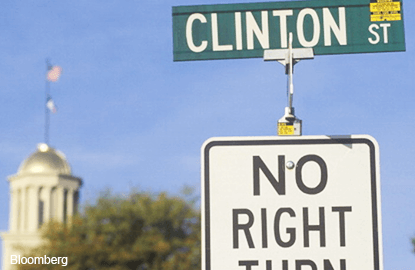
This article first appeared in The Edge Financial Daily, on November 4, 2015.
THERE’S a pernicious meme going around in economics and social science circles, and I want to help quash it. It’s the idea that social science is an inherently ideological enterprise, and therefore researchers should incorporate value judgments into their methods.
Variations on this argument are common on both the left and the right. For example, Russ Roberts, a research fellow at the Hoover Institution (a conservative think tank), has written many times that economic debates are inevitably driven by ideology. Economists on the left, he claims, will invariably draw conclusions that support more government intervention in any situation, while economists on the right will look at the same data and draw opposite conclusions. Since ideology rules debates, says Roberts, we should simply admit this at all times.
Similar cries echo from some corners of the left. The anonymous British blog Unlearning Economics, which criticises modern economics from a socialist vantage point, writes that economic conclusions are always laden with value judgements. When economists make conclusions about efficiency, for example, they are endorsing efficiency as a desirable outcome. For example, looking at efficiency rather than some measure of welfare will lead economists to oppose redistribution taxation, which makes the economy somewhat less efficient while improving the situation of society’s worst-off. The argument was made more succinctly on the left-leaning blog Naked Capitalism, which wrote: “Economics is applied morality.”
This is a seductive idea. That economists are, in practice, affected to some greater or lesser degree by their own values and ideologies is impossible to dispute. For researchers to pretend that this isn’t true would be dishonest, right?
But there are some big problems with this line of thinking. The first is that people don’t always recognise their own ideologies. Our powers of introspection are not perfect, and some are less perfect than others. Suppose half of economists admit their bias openly and the other half are simply too obtuse to realise that they’re biased. The public will naturally trust and respect the latter group more than the former! That’s not a good outcome.
The second problem is that it’s a short, slippery slope from admission of bias to acceptance of it. Russ Roberts and his counterparts on the left would have us believe that bias is fixed and immutable. But that’s just not how things work. In real-world research situations, economists, just like biologists or meteorologists, spend a lot of their time and effort figuring out the facts, rather than recommending policies.
For example, an economist might look at data on how much minimum wages increase unemployment, or how much taxes discourage work.
It’s easy to let one’s bias creep into that exercise. If you think that poor people don’t deserve higher wages, it’s very easy to let yourself steer your research towards the conclusion that minimum wages cause high unemployment. If you think that it’s good to tax the rich to reduce inequality, there is the temptation to report only those results that suggest that taxes don’t discourage labor.
I believe economists — and researchers of all kinds — should resist this temptation. They should try to report the facts as objectively as they can.
That doesn’t mean I think economists should suppress their opinions and values. Just save them for after the facts have been examined. If your research tells you that taxes are really bad for the economy, then report your findings, and then say that you think we ought to tax the rich anyway. If you feel that your research might lead to findings that would harm the world, don’t do it in the first place.
And yes, this is me stating my own ideology. It seems to me that our society has flourished when we dedicate our brightest minds to objective assessment of the facts. That’s how we discovered electricity, the periodic table, DNA and a million other useful pieces of knowledge. Yes, sometimes the human race has abused that knowledge. But overall we’ve used it to make our whole species healthier, wealthier and more peaceful. Why shouldn’t the same trick work in the social sciences?
I believe in objectivity because I believe that the human race will, on balance, do the right thing with the power of knowledge.
It also seems clear to me that if economists allow their values to colour their work, the public will trust them less, and they will eventually be ignored. Perhaps for that reason, mainstream economists usually try to maintain objectivity and eschew politics. How well they accomplish that is an open question, but what little data we have tells me that they do a pretty good job. This is one area where I think mainstream economists deserve a pat on the back.
So when social scientists’ biases clash with their honest assessment of the facts, I think ideology, not objectivity, should be the one to give.
Economics blogger Adam Ozimek puts it best when he writes: “In practice, what this means is that if someone is going to persist in being extremely sceptical of empirical evidence, they should not be very confident in their ideology either.”
Well said. Our values deserve just as much scrutiny as any research result. — Bloomberg View
This column does not necessarily reflect the opinion of the editorial board or Bloomberg and its owners.